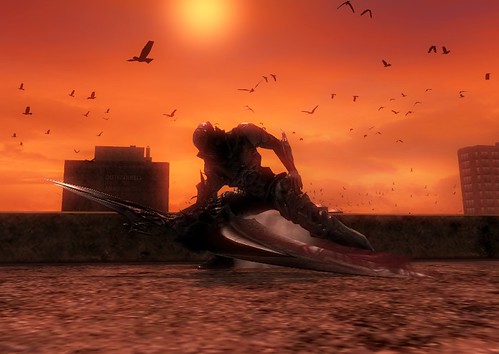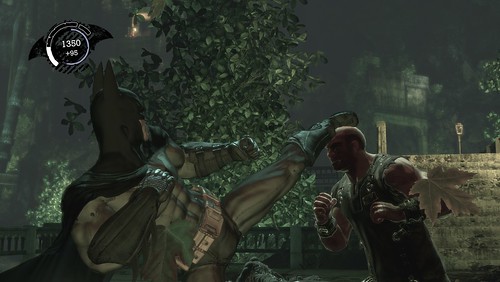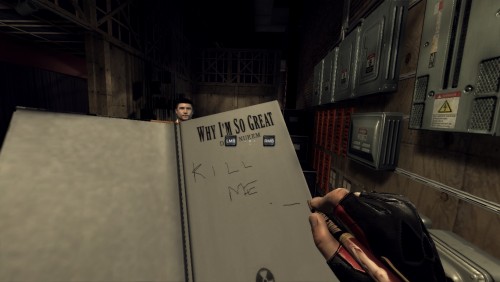TOM FRANCIS
REGRETS THIS ALREADY
Hello! I'm Tom. I'm a game designer, writer, and programmer on Gunpoint, Heat Signature, and Tactical Breach Wizards. Here's some more info on all the games I've worked on, here are the videos I make on YouTube, and here are two short stories I wrote for the Machine of Death collections.
Theme
By me. Uses Adaptive Images by Matt Wilcox.
Search
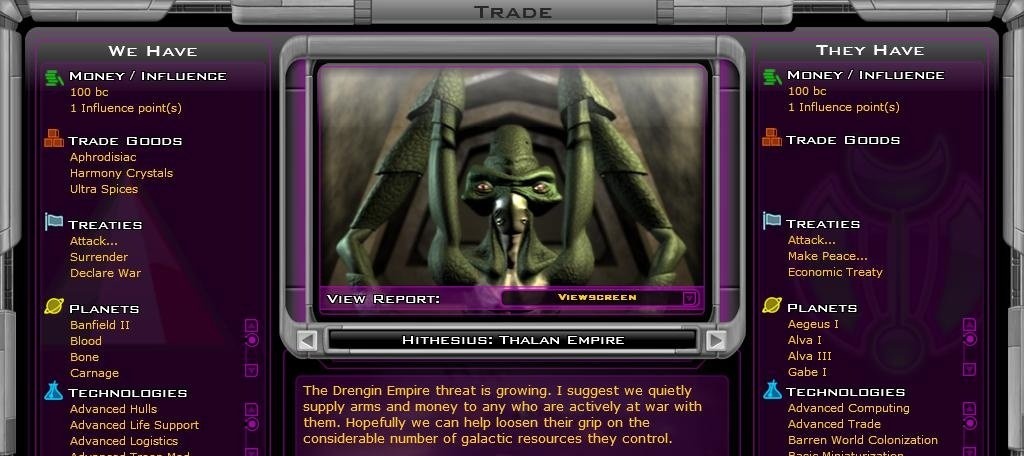
My Galactic Civilizations 2 War Diary
Galactic Civilizations 2 is a strategy game about colonising space. The cool thing about it is the AI: the alien races you meet have very different personalities, and it’s fun to bargain with them and play them off against each other.
Long ago, I tried playing the biggest possible match of it, with the most possible alien races, and wrote up how it went in bite-sized entries.
Update!
CVG, the site I wrote this diary on, is gone forever. But the diary is now back up on PC Gamer’s site! It starts here.
My Favourite Games Of 09
Three-player co-operative fantasy physics platformer.
Provided you have two friends and two gamepads, there’s not much funnier than trying to blunder through these fairytale trapfests without switching characters. The Wizard has to conjour boxes to drop on enemy’s heads, the Warrior has to get his friends to stand on crates as he tosses them over gorges, and the Thief swings elegantly overhead, raining arrows down whether it’s helpful or not.
Lighter-hearted Grand Theft Auto clone.
“I threw pimps into lamp posts, I threw pimps into the sea.” Was the heading of an actual article I got to write in PC Gamer this year, thanks to this game.
Budget-priced streamlined Diablo-style action RPG.
It ended up being called the Draining Epic Boar Cannon of Venom: the result of a great four-barreled pistol, socketed with a great life-stealing skull, and then run through the Shitty Wizard‘s random enchantment service a few dozen times. The genius is not just that you can soup up your best found weapon to make it even more spectacular, but that most offensive skills – like my wonderful Explosive Shot – multiply that weapon’s damage rather than adding a paltry fixed amount.
Old-school real-time strategy.
The most basic tank can turn into a lamp post. If you put a dog in a jeep, the jeep’s gun turns into a megaphone to amplify his bark. I got through one mission by making Sean Connery dress as a bear. In another, my men were audibly dismayed that the lasers incinerating them had come from Abraham Lincoln’s eyes. This is really all I need.
Free-roaming action massacre.
You know that move in faux-wrestling where they climb the ropes to jump elbow-first onto tubby bare-chested man? In Prototype, I ran up a skyscraper, whipfisted onto a helicopter and flew to cloud level to get enough height for an elbow drop. On a tank.
Small-scale strategy.
This wouldn’t be in the list at all but for the Last Stand mode the last patch added. Three players have one unit each, against twenty ridiculous armies. You fail, but each try earns XP, and XP earns new wargear. Even once you have something you like in every slot, the excitement of earning new stuff never wears off because each bit suggests inventive new loadouts to tinker with. In that, it’s one of the most intelligently designed RPGs I’ve ever played, and a needed reminder that Relic are as clever and full of surprises as ever.
Punching.
I really can’t stand the Joker in this, which made me think there was no way I’d end up loving it. As it turns out, the game’s not really about him. The swift and gratifying fisticuffs are more often broken up by the game’s real villain, Scarecrow. His insidious and persistent influence is handled with invention and artistry that lifts Arkham beyond being merely The Only Good Fighting Game.
First-person shooter RPG.
The point of randomising weapon stats, which Borderlands was keen to do in an FPS, is the thrill of finding something that seems too good to be true. I found an electric revolver with a preposterous punch, an explosive sniper that obliterated enemy faces, and a shield so strong it turned my slender ghost lady into a thundering tank.
Time-travelling platformer.
I get irritated with time travel movies, Primer excepted. No! He wouldn’t fade from the photo, idiots! He’d either never have been there or he’d remain! Won’t anybody formulate a coherent logical framework for this kind of light-hearted entertainment?
The great thing about time-travel games is, they have to. The player gets to choose what happens, so the developer has to be able to answer every awkward question he could possibly ask – and even design puzzles that demand your players to understand time travel better than most film-makers seem to. Braid does that, and goes so far beyond; to fringes of twisted thinking and backflips of magical logic I’d never considered.
And yet, so long as you don’t force yourself to solve every puzzle first time, it’s surprisingly doable. It invites incredible thoughts, rather than trains them like Portal. For some, that’s why Portal’s better. For me, that’s why it’s worse.
First-person free-running platformer.
Plenty of more solid games here. Plenty of smarter ones. Plenty of braver, stranger, more surprising experiences. But if I could only save one from the fire, it’d be Mirror’s Edge. Its eye-tinglingly vivid city is one of my favourite imaginary places, and it’s uniquely good at making you feel like you’re there.
I play a lot of first-person games, but in the rest I’m a hovering disembodied gun turret, which really doesn’t have much to do with the experience of being a real person anywhere. The soundscape of Mirror’s Edge is your footsteps and your breath, and your scampering, scrambling gait is the most excitingly tactile way to interface with a virtual world I’ve played. It says something when you can start the trailer for your game with a minute of someone playing your game, on an ordinary level, without fighting anyone, set to the game’s music.
I’ve never really played anything like this, but more to the point, I wish I had. I wish shooters felt like this, I wish we had art this chic, places this cool, music this good and this sense of embodiment in virtually everything we played. Instead, I’ve got an uncertain wait till the next one.

My Favourite Films Of 09
11. Duplicity
Intricate corporate espionage con romance.
This might not even be the eleventh best film of the year, but it’s fresh in my mind so it’s going here. It’s a denser, more convincing version of the Mr And Mrs Smith premise: spies in love, associated trust issues. The corporate espionage theme somehow makes it cooler than the usual CIA/NSA/MEH, and the intentionally confusing time structure is fun to unravel. It also marks itself out as a superior con flick with its ending, avoiding both the ‘smug’ and ‘makes no fucking sense’ traps most of the rest of the genre falls into. Continued
My Favourite Disaster
Back from further secret adventures in the world of exciting things, spent thirty-eight hours on planes this month, tired in a way that sleep won’t fix. It’s breaking season again: came home to a soaking kitchen, TV blew up, network down, new bike tyre immediately flat, PC unupgradable, and laptop took two days to rescue from a series of disasters. The main reason I’ve done so much travelling is that the game broke during my first trip, and couldn’t be repaired for two weeks.
My favourite disaster was when finally managing to get an operating system on my laptop left it unable to recognise its own network card. I had the driver – a 612KB file – on my PC, having found and downloaded it with surprising ease. But I lost my wonderful 4GB USB drive on my way back from my last trip (whoever finds it will have the magnificent ending scene of Portal completely ruined for them by the movie found thereon). I’d used up all my blank CDs burning duff copies of various operating systems after each disc – legit and otherwise – seemed to have at least one essential file corrupt. I had blank DVDs, but the laptop only has a CD drive. I had a floppy disk, and the laptop even has a floppy drive, but nothing else I’ve owned in six years has. I had SD cards, but no card reader. I had a camera that takes them, and the USB cable to connect it, but Windows XP won’t let you write files to my camera because Windows Media Player doesn’t think of cameras that way.
I also had a SIX GIGABYTE MP3 player, but it’s long since stopped working in USB storage device mode. This leaves only Media Transfer Protocol mode, the same infernal madness that dictates that a camera is not a device to be written to. It admits that an MP3 player could conceivably need to receive files, but stops you if you attempt to transfer anything it wouldn’t know how to play through speakers. At this juncture, after curtly informing you that what you’re trying to do is idiotic, it presents you with three options: Skip, Skip All, or Cancel.
This is perhaps the single dumbest problem I have ever encountered. I could almost write out a file of that size in a hex editor if I had a few hours longer. So I used my usual method of getting to the heart of how stupid stuff works: if I was an utter idiot, how would I design this? Well, I certainly wouldn’t actually verify if anything was really a playable music file, I’d just see if the extension was .mp3 and throw a hissy fit if not. By the same logic, a clever man like Tom could easily bypass my angry stupidity by just renaming any old file to MP3, however unmusiclike, then naming it back when successfully transferred.
This is how I came to coin a catchy little ditty called R34071.mp3. It goes a little something like this – and please do sing along if you know the words:
Well, I’m sure you know the rest.
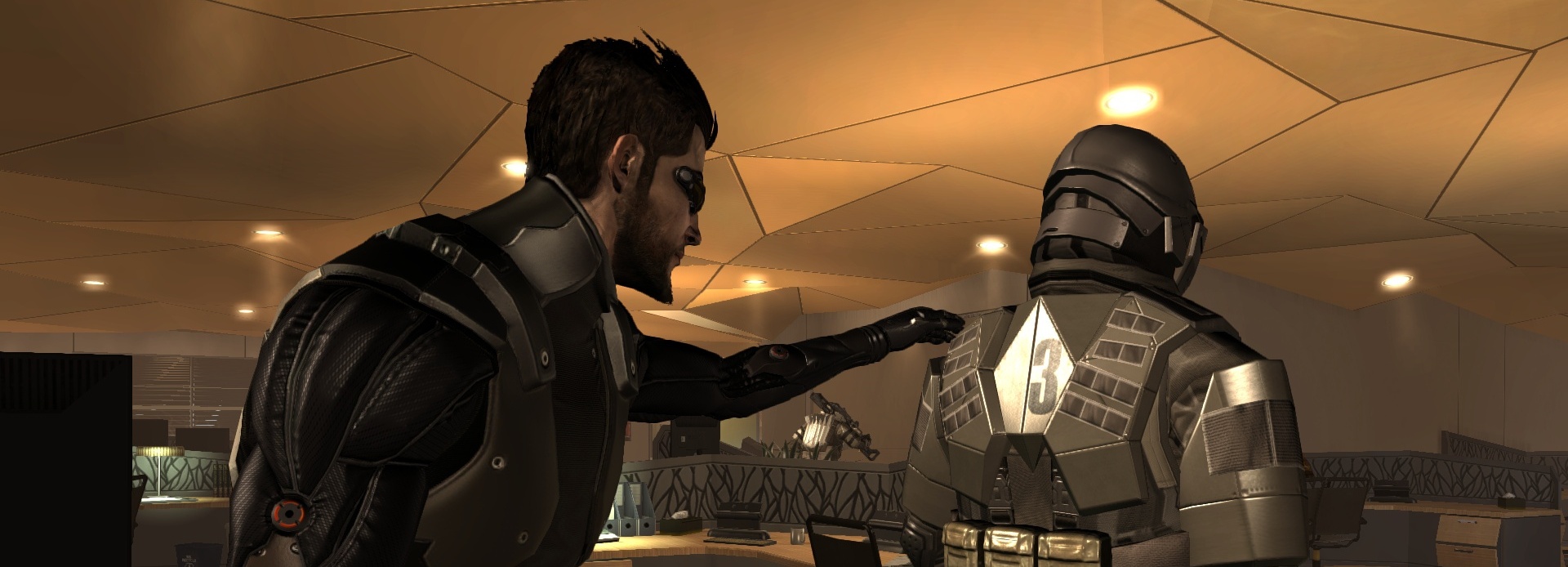
My Deus Ex: Human Revolution Review
My review of Deus Ex: Human Revolution is finally online. It is the greatest thing. The game, not the review. Kind of a big one, so I hope I explained it well enough.
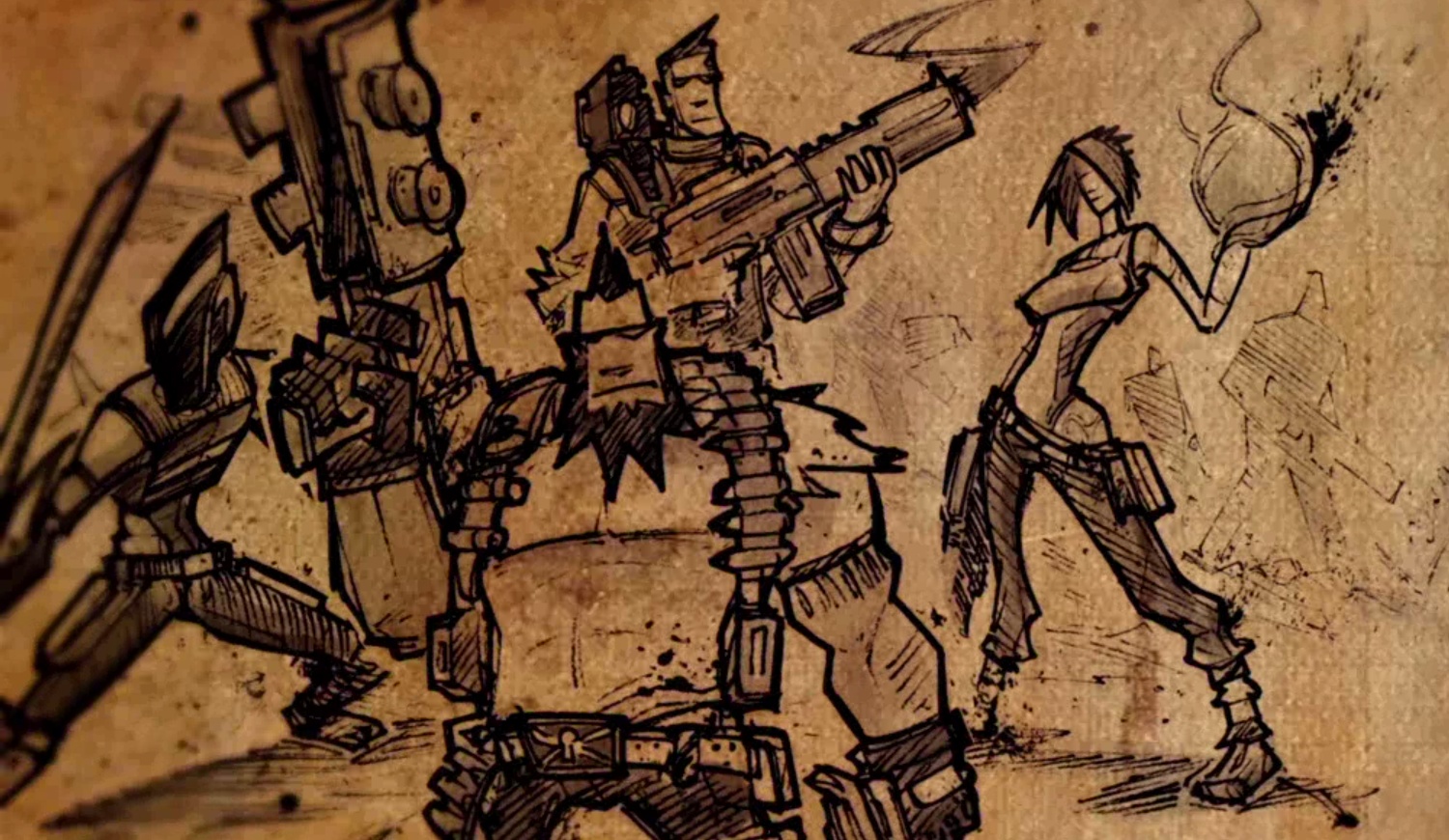
My Borderlands 2 Review Is Up
“Then there are the robots. I was dubious about how much fun it’d be to shoot metal instead of flesh, which now that I write that down doesn’t make me sound like a particularly great person. But I needn’t have worried. You can’t headshot robots, but their joints are weakspots. If you’re taking a lot of damage from a particular droid’s weapon, you can aim and blow that arm off. Continued
My ‘Enemies As Weapons’ Game Idea
The winners of the 48-hour game-making competition Ludum Dare were just announced. It’s a regular thing that awesome indie devs pile onto partly as a test of their skills, partly as a thought experiment, and partly just to jam and share ideas. The theme this time was Enemies as Weapons.
I didn’t enter, though lots of absolute beginners do, and it’s the sort of thing I love. But while I now feel capable of starting a small project like that, I don’t feel capable of finishing one in any kind of time. I was also pretty goddamn determined to get elevators working in Gunpoint by Monday, because four days on that is just kind of sad.
But I did have an idea for one. I think I like the competition’s theme because it’s suggests changing the state of enemies in a more interesting way than from alive to dead. Either to make them accidentally destroy things you want destroyed, as in games where you shove them into something or dodge their attacks, or to turn them to your side.
My game would be called Defect and Serve, and it’d be about bent cops. You’re a criminal who’s just been caught, unarmed, during an elaborate bank job. The arresting officer hints that he’d let you go for a hundred grand, and while he’d like to just take it from you, if you’re dead or caught there’ll be no explanation for the missing money.
Your only option is to pay up – tossing the money to him in bundles of $50,000 by clicking. Above his head is a meter labelled “Principles:” followed by two blue pips, and each bundle of cash makes one of them explode in a little shower of bills. When they’re both gone, he leaves and heads for the opposite end of the building.
It’s from a top-down view, and once that cop leaves you’re free to figure out a route to the exit avoiding the other roaming police. Each has a number of Principles pips, usually between 1 and 10. It’s possible to get out without running into anyone else, but if you do, you’re rooted to the spot and must chuck them a $50k bundle for each pip of Principles they have before you can go.
Once you’re out, the next levels are a series of heists where you start with limited funds, and make your way to vaults and safes to get more. Your objective is to steal more money than you spend bribing, obviously, so you avoid the very Principled cops like the plague.
A few levels in, you’re told you can also toss some extra cash to a cop after you’ve already turned him. This creates a red Loyalty pip, and if you give him as much Loyalty as he had Principles, you can order him to radio an all clear to the rest of the cops, making your current location safe for a while.
If you can double a cop’s Principles in Loyalty pips, you can actually click on another cop to order him killed. The turned cop will head for him, but won’t strike until the two of them are on their own. It’s up to you whether to distract or bribe the other guards to help him achieve that, or get on with sneaking through the building and hope he has the chance at some point.
Eventually you will encounter the odd White Knight cop, who’s impervious to bribes. If he’s guarding your objective, your only option is to have him killed. At this point cops with low principles become essential tools rather than minor threats, and you’ll actively try and run into one on his own so you can turn him to your side. Once you have, it’s worth intentionally alerting the White Knight to lure him away from colleagues, giving your turncoats the chance to take him out without getting caught.
I’m actually enjoying sticking with Gunpoint, it’s just impossible to resist coming up with a concept for a theme like that. I’ll probably have another Gunpoint progress report soon – I’m close to another milestone involving the AI, and I’ll be in a good position to figure out what kind of challenges are going to be fun in this frame work.
Even as it rapidly approaches an actual game, it seems to be getting further and further from the story-heavy finished article I had in mind when I started. I pictured it story-heavy because writing is trivial, but I’m starting to realise scripting is not. And it’s a low value type of work, only really good for one play through, and little to do with the medium’s strengths. I’m starting to wonder if there’s another type of content I can use to link a bunch of puzzles, or a more efficient way to convey story without visually depicting a lot of non-interactive events.
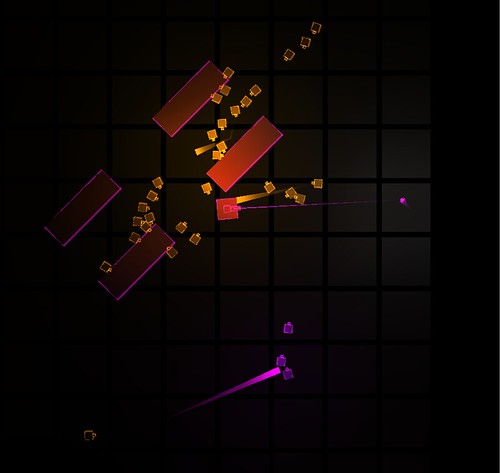 roBurky’s game, I think untitled, lets you convert enemies to your side or blow them up in a chain reaction.
roBurky’s game, I think untitled, lets you convert enemies to your side or blow them up in a chain reaction.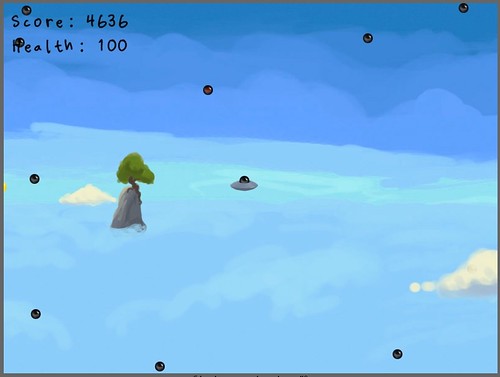 Alien Abduction of Aliens, a simple grab-and-throw game that’s beautifully drawn, and even more beautifully named.
Alien Abduction of Aliens, a simple grab-and-throw game that’s beautifully drawn, and even more beautifully named.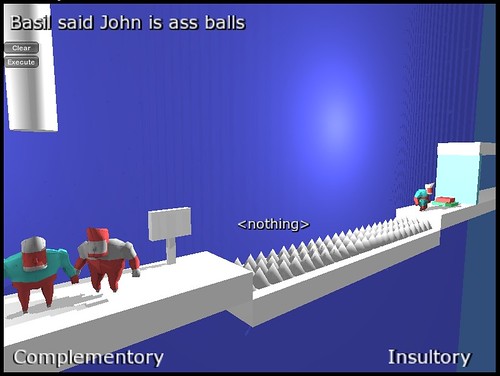 Sophie Houlden’s excellent Fib, in which saying “Basil said John is ass balls” is a valid puzzle solution. You lie to people to trick them into killing themselves, so that you can safely walk on their corpses.
Sophie Houlden’s excellent Fib, in which saying “Basil said John is ass balls” is a valid puzzle solution. You lie to people to trick them into killing themselves, so that you can safely walk on their corpses. The end game of the competition’s winner, Fail Deadly. It’s a smart and immediately fun subversion of an RTS where you build both side’s bases in an attempt to keep them evenly matched long enough for nuclear war to break out, killing everyone.
The end game of the competition’s winner, Fail Deadly. It’s a smart and immediately fun subversion of an RTS where you build both side’s bases in an attempt to keep them evenly matched long enough for nuclear war to break out, killing everyone.
Muxed Feelings
Muxtape has provided my working soundtrack almost exclusively the last week or so. It’s a Super-Simple Service that lets you upload twelve songs, lets anyone listen to them, and ‘favourite’ them. I only just discovered the latter. I was highly enjoying this tape and thinking to myself “I love that this whole site is so laser-focused on what it does, but I do wish there was a way to bookmark the ones you like. Oh, there it is.”
After a long quest to get Seedling’s The Upshot in MP3 format (alas, no OGGs on Mux), mine is complete. Here’s what’s on it and why:

Cat Power – Willie
There’s a lot of classy, soulful, plonking ballads to pick from on The Greatest, but this one just seems to make everything okay. Something about its expansive confidence and nonchalant pace.
Mates of State – Goods (All In Your Head)
This was just written for late summer sunsets, turning from giddily exciting to wistful and almost sad with no audible seam.
Seedling – The Upshot
There’s something beautifully emphatic about the cut-down arrangement of this, the forcefully plucked strings behind her resigned voice. Disastrously, the band split years ago, and they’re obscure enough that they don’t even have a Wikipedia page. My only consolation is that I got to hug them all at their final gig.
New Pornographers – Chump Change
By rights I should have gone with The Laws Have Changed, but I think I over-listened to it. Skimming through my shortlist, the opening bars of Chump Change just elicit a smile like no other track.
Architecture In Helsinki – Debbie
Clever, rhythmic, curling and bizarre. It says something for the propulsive blithering of the chorus that I can tell you, without checking, that it goes, “Hey there, hey there, let me down down, Debbie down, Debbie Debbie Debbie down down Debbie down, Debbie down, Debbie Debbie down down down down.”
Decemberists – The Legionnaire’s Lament
This is the one track of theirs I can listen to endlessly without ever tiring of its neat lyricism and heartfelt botch of authenticity. Any song whose narrator’s camel is in disrepair gets extra credit.
Sparks – Dick Around
Manic, preposterous, majestic rock opera epic, without even the slightest wink or nod to the absurdity of penning such a thing with ‘dick’ in the title.
M̼m РGreen Grass of Tunnel
I don’t think there’s another track during which you could scientifically measure the increase in my body temperature as it starts. It’s warm and enveloping in a way a sound alone surely cannot be.
Low – Canada
The slowcore king and queen of sinister are actually at their most impressive when they veer into other moods and sounds. Canada isn’t exactly upbeat, but it rocks extraordinarily.
Delgados – Favours
Booming, crashing and beautiful. The churning chorus reaches such an exhaustingly elevated pitch and holds it for so long that you finish half-wanting to gasp for breath on Emma Pollock’s behalf.
Ben Folds – Rockin’ The Suburbs
Quite apart from being ridiculous fun, it’s time I acknowledged the genius who unwittingly wrote the ‘About’ section of James for me. As musically worthwhile satire goes, I don’t think any other song so utterly annihilates this many hateful songwriters with its first two lines.
M83 – Lower Your Eyelids To Die With The Sun
You’ll know if you’re going to hate this in the first thirty seconds – and the chance that you will is the reason it’s at the end. But if you don’t, everything you do for the next nine minutes of your life will be unaccountably profound. This is normal.
There’s also MuxFind, which lets you search for Muxtapes featuring music ‘similar to’ a band or song you search for. Since there are a lot of Muxtapes, that tends to mean you find the song you’re looking for. And can play it free. Clearly there’s a legal explosive ticking away beneath this, but for now it remains an awesome way to find lovingly compiled collections of stuff you’ve never heard but which bears a spiritual connection to what you’ve searched for. It’s a much stronger and more effective form of recommendation than automated social aggregation like Last.fm or comparitive content analysis like Pandora.
Multiwinia Mathematics
Here’s an interesting stat: if you play the 49MB demo of Multiwinia, you’re more likely to buy the game than you are after any other Introversion demo.
Here’s a slightly sad one: you probably haven’t. The game’s gone weirdly unnoticed, despite being great. Alarmingly few people are trying the demo in the first place, according to Chris, so the fact that it’s brilliant isn’t counting for much.

It’s a simple strategy game that unfolds in five or ten minutes, depending on the map, and you play it against bots or other people. I’ve found that I like the bots: they fall for my ploys, they don’t gang up on me as much as humans, but they still have me worried throughout, and occasionally win the day.
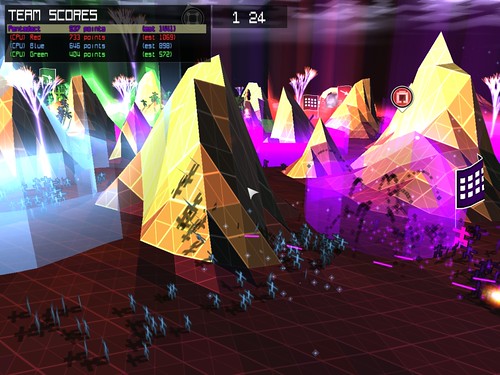
The fundmantals are about groups of stick men being spewed out of capturable spawn points at regular intervals. But while there’s plenty of strategy in how many of those you direct where, most of the spectacular insanity that makes the game compelling comes from a completely different source.
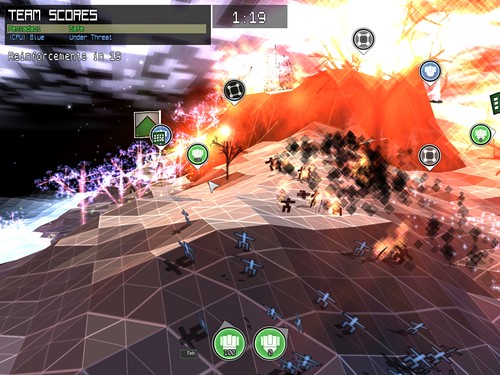
Crate drops are random in timing, placement and content, but contain powerful weirdness. You can summon the nuclear subs from DEFCON, the horrible digital ant hills from Darwinia, a flamethrower turret, or a Cannon Fodder deathsquad. You can also unwittingly unleash a race of Evilinians, a fractal forest, or a gigantic UFO from the future.
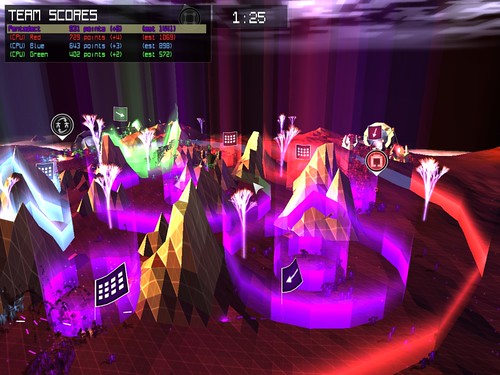
And it’s so pretty you’ll think it’s Christmas.
Here’s a nice stat: Google Analytics tells me that James readers are 800% cooler than the general internet populace. That means a good percentage of people reading this have tried the demo and bought the game. So I leave this as an exercise for the reader: if you’ve got it, played it and liked it, say so somewhere public.
Mulholland Drive
Genre: surrealist psychological horror.
Stars: Naomi Watts (American version of Ring), Laura Harring, Justin Theroux (apparently an Irish bad guy in the second Charlie’s Angels film).
Plot: a partially failed actress is dumped by the girlfriend who got her the few roles she ever had, for a man, and hires a hitman to have her killed. In her grief and guilt, she tries to reimagine her life in Hollywood with showbusiness gloss, but her dreams are haunted both by reality and terrifying symbols of death and dementia.
Why It’s Great:
- The plot is more complex than the top two films combined in some sort of really complex way: it’s probably not possible for a human mind to grasp it on first viewing, and because of that it – like any David Lynch film – has been made artistically beautiful enough to work as a rationally unintelligible surrealist piece.
- Dream is entangled almost inextricably with reality.
- Dozens of ingenious crossovers and quirks crop up once you make sense of it.
Mrs D Mrs I Mrs F-F-I, Mrs C Mrs U-L-T

If you keep up with these kinds of things – Norwegian electro-pop – you’ve probably already heard Annie’s obnoxiously infectious I Know Your Girlfriend Hates Me. While that was getting its deserved round of blog applause, I was only just discovering her four-year-old first album. It’s almost cockily smart, sharp, sugar-crusted pop, anomalous in a debut. Amusingly, I now discover she’s billed as “The Kylie it’s cool to like”.
With this track, it’s all about the speed-rhyming spellouts, and to a lesser extent the cute anachronisms of the chorus. I think I could like hip-hop more if the lyrics were about people ringing one another’s bells.
Morrowind
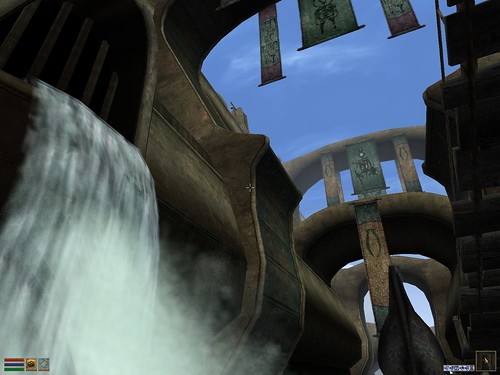
The Basics
Massively single-player first-person RPG – a huge and freely explorable fantasy world, hundreds of quests, of which the main plot line – the longest game I have ever played – accounts for less than half. You can be stealthy, fighty, magicky or any combination thereof, you can join guilds, go anywhere, kill anyone and anything and – importantly – take its clothes and anything else it might have had. Combat is real-time, and requires nimble fingers to jump around, dodge and aim. Skills level up the more you use them, rather than by assigning stat points, so you become the character you’re trying to be.
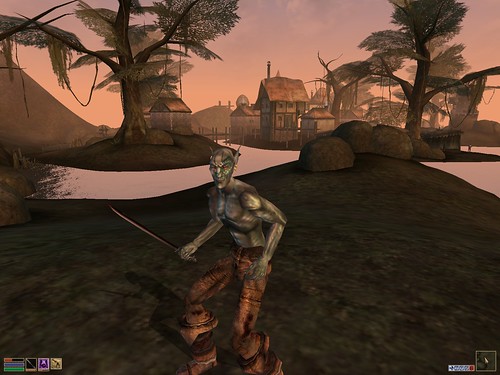
The Appeal
RPGs ought to be the best games in the world, but virtually all of them have achingly dull combat and insist on a third-person view. The Elder Scrolls series has been chugging merrily down the lineage set out by Ultima Underworld, and with each iteration, more people say “Hey, that looks way better than the frustrating and unengaging rubbish we consider good!” Morrowind was when the series moved to what we recognise today as a true 3D engine – 3D accelerated, everything made of polygons. It’s about being in an RPG world for pretty much the first time – physically hitting monsters with a sword to hurt them, having to aim your fireballs like an FPS. Climbing mountains that even the developers don’t know are climbable. Stumbling upon a wooden door set into the rock, going inside and finding a smuggler’s hide-out with bodies, diaries and a story to be deduced. Short answer: it’s first person.
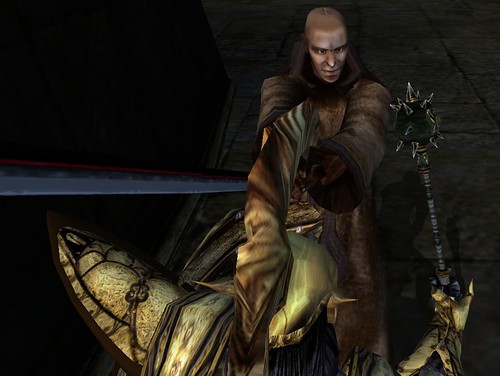
The Essential Experience
Filling out a form. It’s a clever conceit for character creation – the Census And Excise Office asks you to fill out your personal details for their records. The magic of the moment, though, is threefold: a) the music – the perfect fantasy theme tune, full of grandiose scale, promise and magic, b) the sheer range of options, even before you get to choosing skills and abilities – there are thirteen races, and c) seeing the world for the first time – you’ve just come out of a prison ship, so you get the three-hit combo of the lovely water effects, a giant tick standing in the lovely water effects, and the unearthly noise the giant tick standing in the lovely water effects makes.
Morphblade Is Out!
This is the game I started last year, when I needed a break from Heat Signature, and I’ve continued to tinker with it on the odd weekend or evening. It’s crystallised into something I really enjoy playing, so I asked testers what they thought it was worth. The average answer was $5, so $5 it is! It’s out now on Steam, for Windows.
Morphblade was heavily inspired by Imbroglio, so I asked Michael Brough’s permission before developing and selling it, and he was kind enough to give his blessing. The core idea that your location determines your weapon is straight from Imbroglio, but along the way I changed pretty much everything else.
So you move around a hexagonal grid slicing, smashing and bursting waves of nasty red bugs. Each hex you move to turns you into a different weapon: on a Blades hex you can kill things to your sides, on an Arrow you can fire yourself through two enemies in a row. And between waves, you choose how to build out the grid to your own design.
If you’re subscribed to the Humble Monthly Bundle (on 3/3/2017), you already have it. If not, grab it from Steam for $5.
Here’s a video that explains it better!
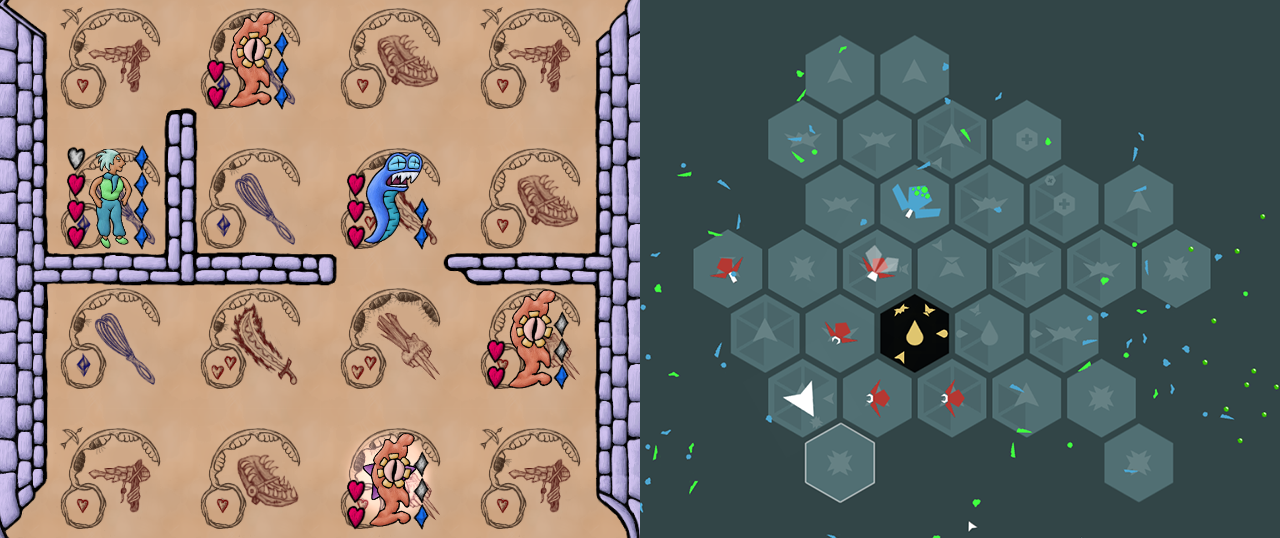
Morphblade And Imbroglio: Making A Game To Test A Critique
I released Morphblade last week, which is a game I made in direct response to Michael Brough’s Imbroglio. They’re both games where you move around a grid of different tile types, and the one you’re standing on determines what you can do there.
I’ve also been playing a lot of XCOM 2 lately, and dreaming up my own indie equivalent to solve its clarity problems. So I started to worry: am I less original now? Have I gravitated towards building on other people’s ideas? Gunpoint was derivative, but at least it was derivative of many things rather than any one game.
But it’s OK, because like so many unoriginal people I found a way to rephrase this to make myself sound good. This is not unoriginal game design, it’s playable games criticism! I used to write about where games went right or wrong, now I actually try fixing their problems and find out if I’m right!
That’s bluster, of course, but it’s reasonably true of Morphblade. It started as a private experiment: I hate getting screwed by the corridor generation in Imbroglio! Couldn’t I just remake Imbroglio and fix that? Can I fix that? Am I right that it would help?
Along the way, I realised I had opinions about almost every other part of Imbroglio, and tried doing each of them my way to see if it worked. Not: “The game has these flaws, I will fix them!” – Imbroglio is hugely successful at being the game it wants to be. More: “I wouldn’t have done it this way, how would my way have worked out?”
So here, specifically, were the main changes I was interested in trying: Continued




